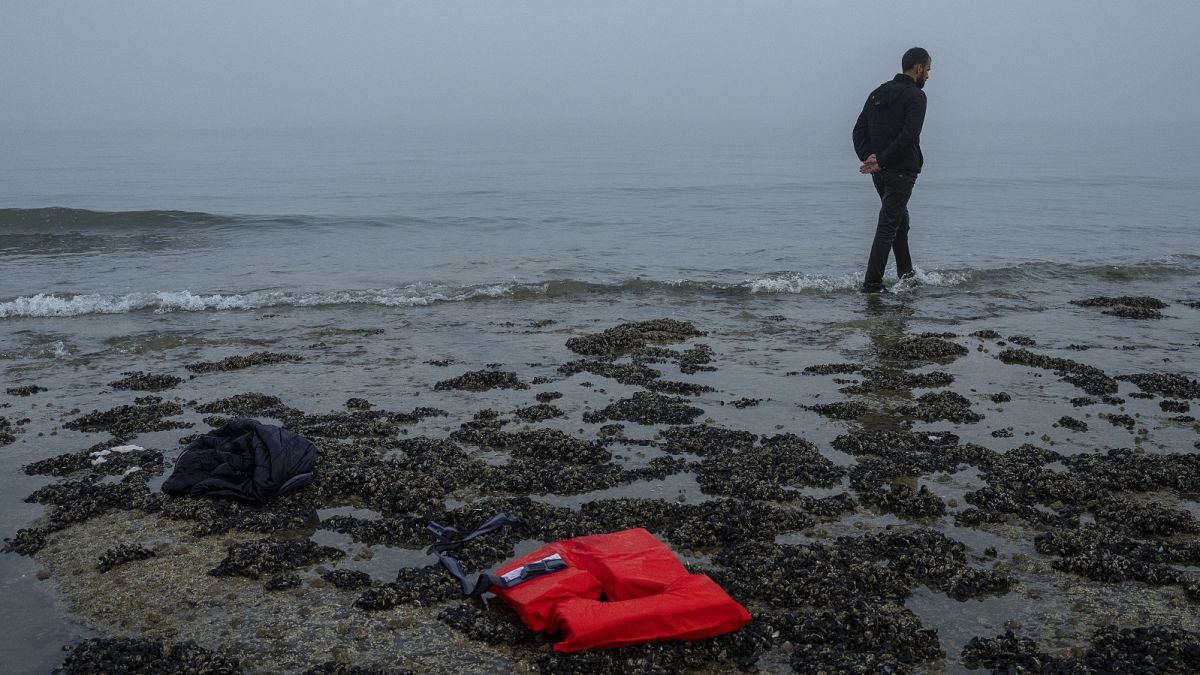Thursday’s general election could bring the Rwanda deportation plan to a halt. But campaigners warn Labour against mimicking the Conservatives’ hard line on migration.
As the UK gears up for an election likely to trigger a change in government for the first time in 14 years, the Conservatives’ plan to deport asylum seekers to the eastern African country of Rwanda looks set to grind to a halt.
The policy, first announced in April 2022 as a response to the growing number of migrants crossing the English Channel in small boats, has been deemed unlawful by the UK’s Supreme Court. But Prime Minister Rishi Sunak circumvented legal hurdles by pushing through a bill in April deeming Rwanda to be a safe country.
Sunak has said flights removing asylum seekers to Rwanda will take place if he is re-elected.
But with Labour marching ahead in the polls and vowing to scrap the deportation plan completely, a shift in the UK’s migration policies looks imminent.
For Faheem, an Afghan asylum seeker who has spent two years in the United Kingdom, a change at the top of government is sorely needed to protect those seeking refuge in the country.
“This prime minister tells everyone new here (they can’t) stay – I don’t give you the stay in the UK, I send you back to Rwanda,” Faheem, whose brother was killed by the Taliban, told Euronews. “This is not good for me. Rwanda, Afghanistan is the same for me.”
The plan would see deported asylum seekers’ requests for protection processed in Rwanda, where they would then stay if successful.
It has attracted broad criticism from opposition parties and human rights defenders alike. Sunak claims the policy would work as a deterrent to prevent migrants from embarking on the dangerous crossing across the channel from the French coast.
“Actually, the research evidence suggests that the deterrent effect is quite small,” Dr Ben Brindle of Oxford University’s Migration Observatory told Euronews. “And that’s because, at least in the case of the UK-Rwanda scheme, that only a few hundred people would be sent to Rwanda. And so when an asylum seeker is weighing up whether to come to the UK, the risks that they will be sent to a third country is actually very low.”
Fizza Qureshi, CEO of charity Migrants’ Rights Network, while welcoming Labour’s proposals to wind up the Rwanda policy, says the party must be careful not to pander to the right wing’s hard line on migration in a bid to appease voters.
“We’re obviously supportive of the Rwanda plan being scrapped in its totality, but we are concerned that an alternative would be brought into place,” Qureshi told Euronews.
“So whereas Rwanda is still a concern and has been identified as an unsafe country for many individuals, we are concerned that another country will be considered by Labour. And we know this because bilateral agreements are already taking place (..) between Bangladesh and the UK, and with India.”
In May, the UK government signed a deal with Bangladesh to speed up the return of migrants.
Labour is proposing better migration controls and more cooperation with France in a bid to tackle the people smuggling networks that traffic migrants over the Channel. But with the UK election sandwiched between two rounds of snap legislative elections in France – where the far-right National Rally is aiming to enter government – experts say cooperation with Paris could become trickier.
“France has an interest in fighting, migration, crime, but it doesn’t really have an interest in stopping migrants leaving France and travelling to the UK,” Ian Bond of the Centre of European Research, said. “I suspect that that may be even more of a problem if France does get a more right-wing government after the second round of the elections.”
Labour and Conservatives vow to cut net migration
Sunak and Starmer have both said they want to bring overall net migration – including legal migration – down, but have different approaches in achieving that goal.
“The Conservatives would look to restrict the supply of visas, and they would do this by putting an annual cap on work and family visa grants each year,” Dr Brindle explained.
“For Labour, it’s more about restricting the demand for visas, and they would do this by linking skills policy and immigration policy so that employers and sectors which request high numbers of work visas would have to enact training workforce plans to fill those skills gaps with workers who are already in the UK.“
Since Brexit, the number of people emigrating to the UK from the EU has plummeted, while migration from outside the EU has steeply risen.
The parties’ vision to slash net migration has therefore raised questions about the potential impact on labour shortages in critical sectors including healthcare.
“If there are fewer people coming to work in these kinds of jobs, there is a question about how those vacancies can be filled,” Dr Brindle explained. “Now, it doesn’t have to be through migration, but something else will have to be done, such as improving pay and working conditions in these jobs to make it more attractive for people who are already in the country.”


